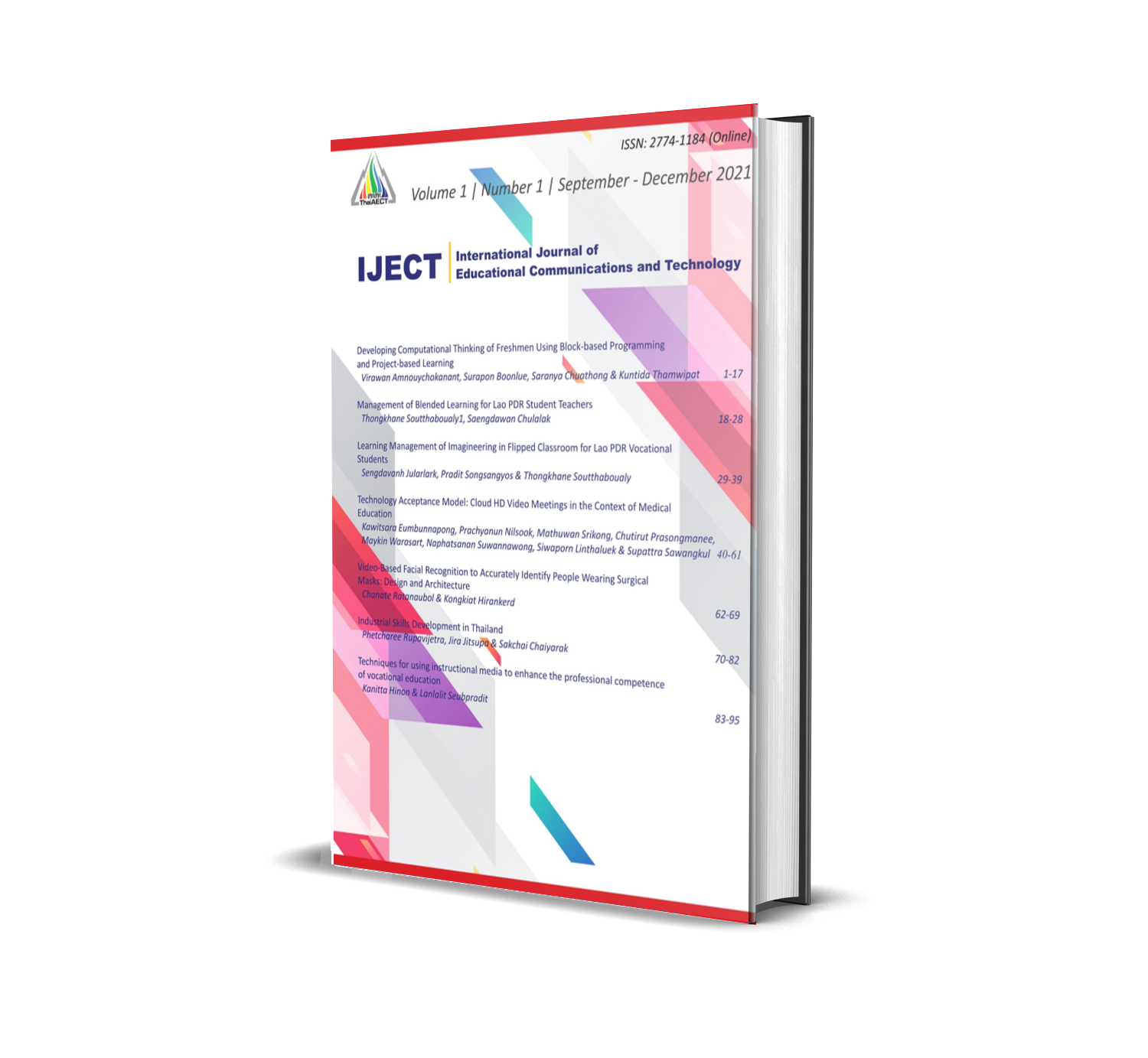Students’ Preparedness for Online Learning and Its Effectiveness: A Regression Analysis Among Students of a Public University
Keywords:
online education, effectiveness of online learning, preparedness for online learningAbstract
The pandemic COVID-19 undeniably caught off guard the education systems and the learners. This situation exposed curriculum differences. In the Philippines, as one of the countries that swiftly took the track of implementing online learning to deliver lessons, used Google Classrooms, WebQuest and other online sites. In this paper, the researcher investigated the preparedness of the students for online learning and its perceived effectiveness. Preparedness was assessed using the following sub variables – access to technology, skills in technology, studying skills, motivation, and time management. Findings revealed that students used smartphones and laptops as their gadgets and have wired connection during online class. Moreover, students are very much prepared in terms of their access and skills to technology and has favorable assessment towards effectiveness of online learning. In addition, preparedness significantly affects effectiveness of online learning. However, among the variables under preparedness, studying skills was found to have the most influence based from correlation and regression values. The findings led the researcher in drafting recommendations addressing effectiveness and preparedness for online learning in case faced with similar situation in the future.
References
Adjei, N. (2019) The use and Effect of Smartphones in Students’ Learning Activities: Evidence from from the University of Ghana Legion. Library Philosophy and Practice (e-journal) 2851.
Bao, W. (2020, April 8). COVID‐19 and online teaching in higher education: A case study of Peking University. Retrieved from Wiley Online Library: https://onlinelibrary.wiley.com/doi/full/10.1002/hbe2.191.
Basilaia, G., & Kvavadze, D. (2020). Transition to Online Education in Schools during a SARS-CoV-2 Coronavirus (COVID-19) Pandemic in Georgia. Pedagogical Research, 5(4), em0060. https://doi.org/10.29333/pr/7937
Cahapay, M. B. (2020, June 03). Rethinking Education in the New Normal Post-COVID-19 Era: A Curriculum Studies Perspective.
Crawford, J., Butler-Henderson, K., Rudolph, J., Malkawi, B., Glowatz, M., Burton, R., . . . Lam, S. (2020). COVID-19: 20 countries’ higher education intra-period digital pedagogy responses. Journal of Applied Learning and Teaching.
Cua, A. (2020). The Mnaila Times: Pros and Cons of Online Learning. July 9, 2020. https://www.manilatimes.net/2020/07/09/campus-press/pros-and-cons-of-online-learning/739650.
Daniel, J. (2020). Education and the COVID-19 pandemic. Prospects, https://doi.org/10.1007/s11125-020-09464-3.
Department of Education. (2020). Department of Education (deped.gov.ph)
Department of Health (DOH). (2020). Daily Cases. https://doh.gov.ph/
Gamage, Kelum A. A., & Perera, E. (2021). Undergraduate Students’ Device Preferences in the Transition to Online Learning. Social Sciencesm, 10. 288. https://doi.org/ 10.3390/socsci10080288
Garcia, M. (2017.). E-Learning Technology Adoption in the Philippines: An Investigation of Factors. The International Journal of E-Learning and Educational Technologies in the Digital Media , 118-130.
Gunawardena, C. & Duphorne, P. (2001). Which Learner Readiness Factors, Online Features, and CMC Related Learning Approaches Are Associated with Learner Satisfaction in Computer Conferences?. Presented at American Educational Research Association Annual Meeting 2001. October 25, 2021 from https://www.learntechlib.org/p/93056/.
Guo, Y.-R., Cao, Q.-D., Hong, Z.-S., Tan, Y.-Y., Chen, S.-D., Jin, H.-J.,… Yan, Y. (2020). The origin, transmission and clinical therapies on coronavirus disease 2019 (COVID-19) outbreak - an update on the status. Military Medical Research, 7. https://doi.org/10.1186/s40779-020-00240-0
Khan, A. Q. (2012). Empirical Evaluation of Quality Education Earning’s Potential and their Role in Poverty Alleviation in Pakistan. International Journal of Research in Commerce, Economics and Management, 2 (10). http://ijrcm.org.in/article_info.php?article_id=2375
Kritz, I. (2020). The Manila Times. PH not ready for online schooling. June 1, 2020. https://www.manilatimes.net/2020/06/11/campus-press/ph-not-ready-for-online-schooling/730998/.
Lundberg, J., Merino, D. & Dahmani, M. (2008). Do Online Students Perform Better than Face-to-face Students? Reflections and a Short Review of some Empirical Findings. Revista de Universidad y Sociedad del Conocimiento. 5. 35-44. 10.7238/rusc.v5i1.326.
Newman, M. (2008). The “Self” in Self-Development: A Rationalist Meditates. American Association for Adult and Continuing Education. 58(4), 284-298.
Paul, J. & Jefferson, F. (2019). A Comparative Analysis of Student Performance in an Online vs. Face-to-Face Environmental Science Course From 2009 to 2016. Frontiers in Computer Science. 1, 7.
Selim Ahmed, H. (2010). Hybrid E-Learning Acceptance Model: Learner Perceptions. Journal of Innovative Education. 8(2), 313 – 346.
Shereen, M., Khan, S., Kazmi, A., Bashir, N., & Siddique, R. (2020). COVID-19 infection: Origin, transmission, and characteristics of human coronaviruses. Journal of Advanced Research, 91-98.
Toquero, C. M. (2020, April 16). Challenges and Opportunities for Higher Education amid the COVID-19 Pandemic: The Philippine Context. Pedagogical Research.
Tseng, S., Su, J., Hwang, G., Hwang, G., Tsai, C., Tsai, C. (2008). An Object-Oriented Course Framework for Developing Adaptive Learning Systems. Educational Technology & Society, 11(2), 171-191.
Tuntirojanawong, S. (2013). Students’ Readiness for E-learning: A Case Study of Sukhothai Thammathirat Open University,Thailand. Journal of Learning in Higher Education, 9(1), 59-66.
Ullah, O., Khan, W., & Khan, A. (2017). Students’ Attitude towards Online Learning at Tertiary Level. PUTAJ– Humanities and Social Sciences, 25(1), 63-82
UNESCO. (2020). Education: From disruption to recovery.
World Health Organization. (2020). Coronavirus disease 2019 (COVID-19).
Worldometer. (2020). COVID-19 CORONAVIRUS PANDEMIC.
Downloads
Published
How to Cite
Issue
Section
License
Copyright (c) 2022 International Journal of Educational Communications and Technology

This work is licensed under a Creative Commons Attribution-NonCommercial-NoDerivatives 4.0 International License.







